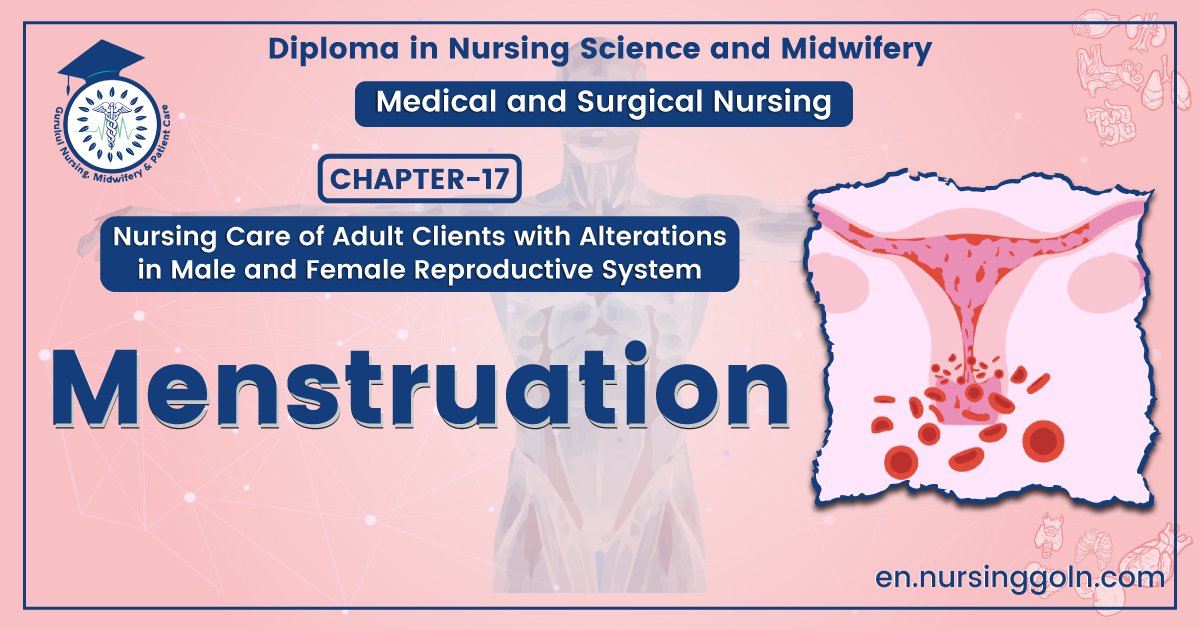Concept of Menstruation – This course is designed to understand the concept of community health nursing: nurses’ roles and interventions in family health, school health, occupational health, environmental health, elderly health care, gender issues, disaster management and principles and terminology of epidemiology. The aim of the course is to acquire knowledge and skills in community health nursing.

Concept of Menstruation
Definition of Menstruation:
The cyclic discharge of blood, containing tissue debris of endometrial shedding through the vagina from the non-pregnant uterus in the reproductive life of female at an interval of 28 days is called menstruation.
Average duration of menstruation is 4-7 days.
OR.
It is the periodic vaginal bleeding that occurs with the shedding of uterine mucosa. The usual duration of the menstrual flow is 3-5 days.
Definition of Menstruation:
The monthly rhythmic changes in the rate of secretion of female hormones and corresponding changes in the ovaries and sexual organs as well as menstrual cycle.
Average length of each cycle: 28 ± 2 days (normally)
Change in Different Phages of Menstruation:
A) Proliferative/estrogenic phage: Duration this phage 10 days (5th – 14 days). Under the influence of estrogen secreted by the ovary following changes occurs.
- Stromal cells and epithelial cells at the basal parts proliferative rapidly.
- The endometrial surface is re-epithealized
- The glands increase in number and length
- The blood vessels become elongated and tortuous
- Endometrium becomes 3-4 mm thick
B) Secretory/progesteronnal phage: Duration of this phage is 14 days (15th-28th days). Under the influence of progesterone and estrogen secreted by corpus luteum, following changes occur
- Slight cellular proliferation of endometrium caused by estrogen and progesterone causes marked swelling and secretory development of endometrium.
- Glands enoughly increase, become convoluted and secretory character appear in them.
- Blood vessels become elongated and highly tortuous
- Increase lipid and glycogen deposition.
- Endometrium becomes 5-6 mm thick.

C) Menstrual/bleeding phages: Duration this phage (14th days). The periodic shedding of blood. Damaged tissue of endometrium and unfertilized ova per vagina is called menstruation.
- Degeneration of corpus luteum
- Hormonal support of endometrium withdrawn
- Constriction of spiral arteries which supplies the stratum functional
- Stratum functional become ischemic
- Wall of spiral artery become necrotic
- Spiral artery suddenly dilates
Necrotic wall rupture and initiate menstrual bleeding.
